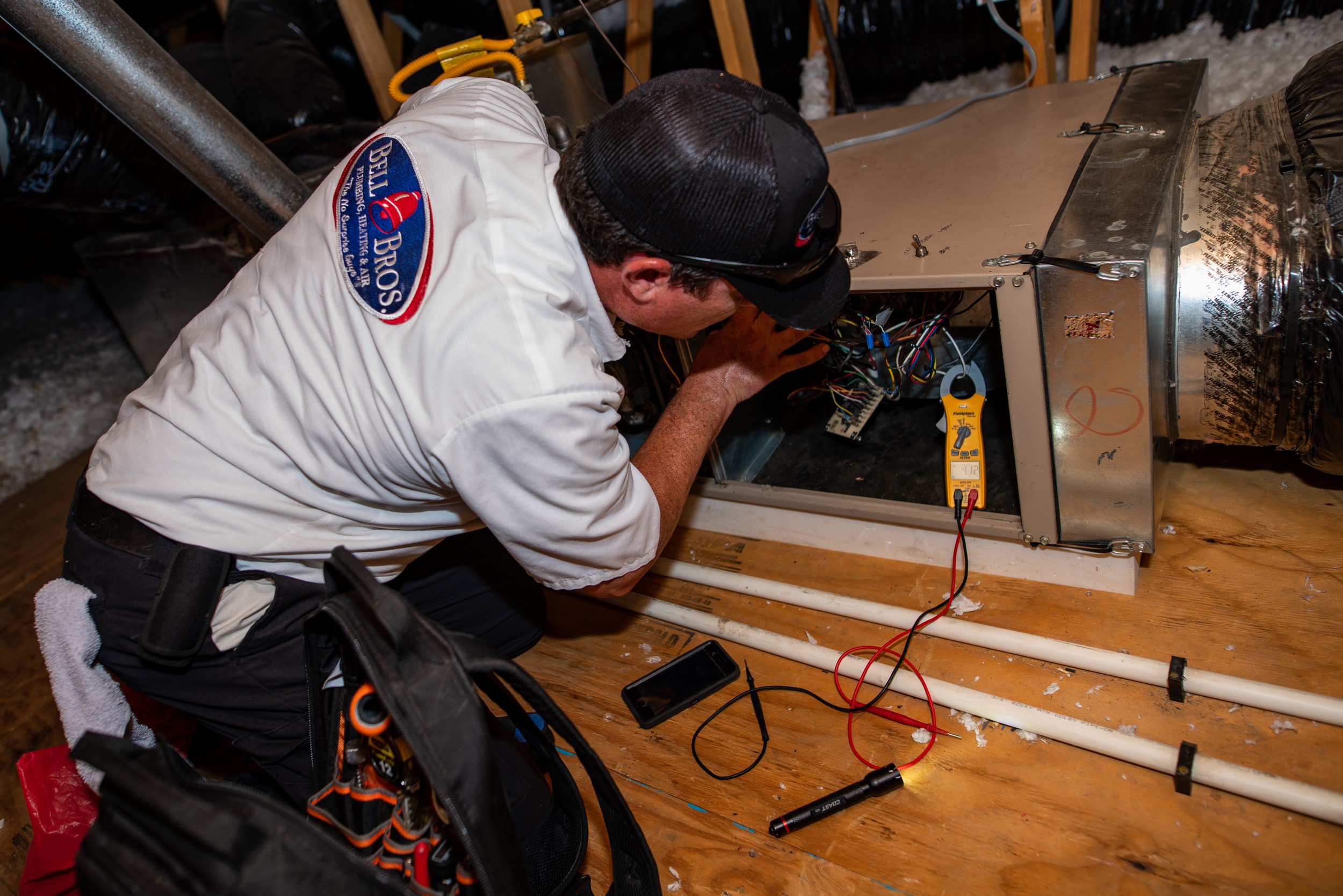
When it comes to indoor air quality (IAQ), there are several questions that homeowners don’t think to ask but should. Here are five examples of questions you should ask your IAQ contractor:
1. Do I need to be concerned about my home’s air quality?
Scientific studies consistently show that the air inside of homes is generally of far poorer quality than the air outside. This may be partly due to the tightly insulated character of newer homes, a byproduct of which is reduced ventilation. With less fresh outside air entering and circulating through the home, indoor air can become stale or even unhealthy, as particles like dust, allergens and airborne contaminants can become trapped inside. For this reason, it’s important to be aware of your home’s air quality and take steps to improve it as needed.
2. How can I measure my home’s air quality?
Measuring the air quality inside your home is something you can do yourself. You can purchase an indoor air quality monitor for about $100, and you can also purchase kits/tools for detecting mold, radon, and other pollutants. Alternatively, you can hire a local air quality professional to test your home’s air quality.
You should also pay attention to anecdotal signs of in-home air quality issues. For example, if you or members of your household experience severe allergies or respiratory issues and the symptoms seem to be worse while at home, this may be a telltale sign of poor IAQ.
3. What can I do to improve my IAQ?
There are several ways to improve IAQ, but it’s good to start with simple steps. For example, regularly replacing your home’s air filter every three to six months will help maintain proper airflow and circulation. You should also have your air ducts professionally cleaned every two to five years and inspected on a regular basis. If your ductwork contains holes, dirty air and even rodents may be able to enter, which can negatively impact your IAQ.
Another simple way to improve your IAQ is to purchase an air purifier. By actively removing common contaminants from the air, these standalone units are a helpful supplement to your home’s air filtration system. Just make sure the air purifier you choose is appropriately sized to the room/area you plan to put it in. Additionally, verify that it’s equipped to remove smoke particles from the air—something that HVAC system air filters can’t do.
4. Should I upgrade my air filter?
A quality air filter is a great investment for IAQ. Instead of buying a standard, one-inch furnace filter, purchase a high-grade filter that more effectively captures dust and airborne contaminants. Depending on what type of HVAC system you have, opt for a filter with a rating of MERV 8 to MERV 16. Keep in mind that installing a filter with too high of a MERV rating can cause problems by restricting airflow, so don’t go overboard.
5. Is it worthwhile to add an air purification system to my HVAC system?
A: If members of your household have allergies or respiratory issues, or if IAQ is a top priority for you, it can be worthwhile to add a designated air filtration system to your HVAC system. Air filtration systems actively bring fresh, filtered outside air into the home while cycling out stale indoor air. Some systems utilize technology like UV lights (which kill airborne pathogens and other contaminants as they float by) and ventilation heat recovery (which salvages heat from outgoing air to warm the incoming fresh air). By taking advantage of the latest in air filtration technology, you can maximize the quality of your home’s indoor air.
